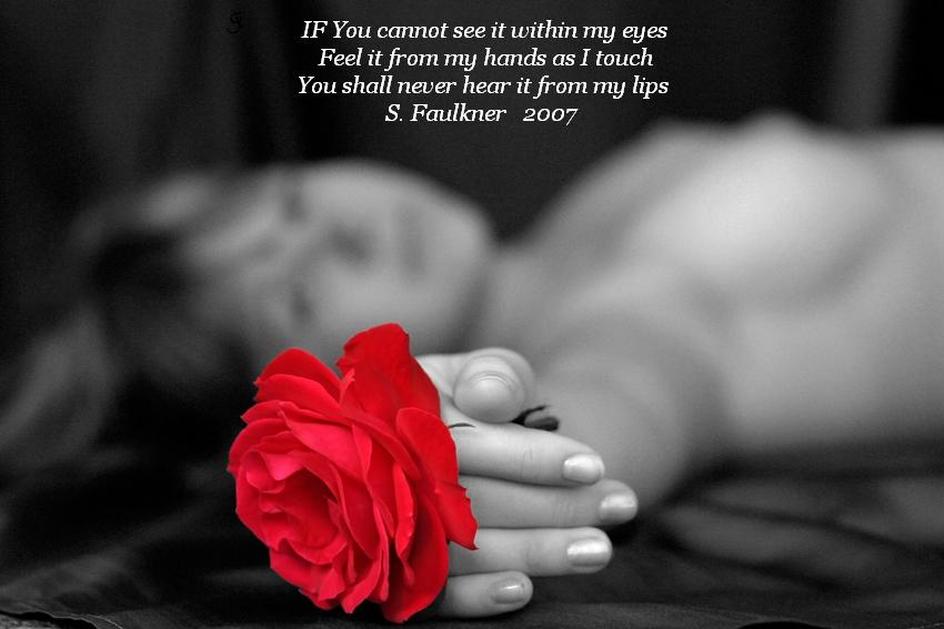Cute Romantic Quotes Biography
Source (Google.com.pk)George Gordon Byron, who is usually referred to as Lord Byron, was a prominent British writer, most famous for the influence of his poetry on the romantic movement that originated in the eighteenth century. Byron was also the 6th Baron of the Byron family, hence his being known as Lord Byron. The title of Lord is typically given formally to a baron in England. He was born on January 22nd 1788 in London. Byron was to be one of the most illustrious poets of British literary history. Even though his writing style was quite classical, he would become one of the great figures of British Romanticism together with William Wordsworth, Samuel Taylor Coleridge, Shelley and Keats. Lord Byron’s best known works are not only the short poems She walks in beauty ; When We Two Parted ; and, So, we’ll go no more a roving, but also his two narrative poems Childe Harold’s Pilgrimage, and, of course the more than famous Don Juan.
Byron descends from a branch of an old Norman family (situated in France), the “de Buron". Counting amongst his ancestors are both violent and eccentric characters. His own mother, Catherine Gordon of Gicht was a passionate and extravagant woman. George Gordon Byron’s childhood would be spent in Scotland in the seaport city of Aberdeen. His father was Captain John Byron, nicknamed the “Mad Jack" because of his dissolute life, the fact that he abandoned George and his mother, leaving them in dire financial straits. If we can trust the British aristocrat and novelist Lady Caroline Lamb, who would have an affair with Byron, he had inherited from his father at least some of his so-called madness. Indeed she described Lord Byron as being “mad, bad, and dangerous to know."
It is up for debate the extent to which this description is true but it is clear that as a writer Lord Byron would have an adventurous life, where the the constant search for freedom would often put him in tension with the lyrical norms of his time, which in turn would arguably make him an unparalleled romantic poet. Thankfully, at the age of ten he would inherit the title of Lord from his great uncle, Lord William, together with his estate of Newstead Abbey in Nottinghamshire, England. Byron would study at Dulwich in south London, and then at Harrow School in northwest London before attending Cambridge University in 1805.
Byron’s first book, Hours of Idleness, would be published before the end of his studies, after which he would travel throughout Europe, including Greece. In 1811 he would return to England and would soon after successfully publish the first two Childe Harold’s Pilgrimage cantos in 1812. The same year he made his first noticed speech in the House of Lords. Naturally sincere, Byron would not care that he could offend and would thus, for many, be refreshingly satirical. As a liberal, he would hate equally hypocrisy and tyranny. Overall his life would be filled with writing, travels and women.
Byron would indeed become one of the greatest British poets and that in spite of the rather high level of competition at the time. For example, he is today considered the equal of Keats (1795 - 1821) and Shelley (1792 - 1822). However Byron would at one time overshadow them all by the extent of the glory he experienced during his lifetime. Because of that many argue that his fame went beyond that of even Scott (1771 - 1832), Wordsworth (1770 - 1850), Southey (1774 - 1843), Moore (1779 - 1852) and Campbell (1777 - 1844).
Byron has sometimes been compared to the Scottish poet Robert Burns (1759 - 1796). This is mostly because both would write from their personal impressions and feelings, showing themselves almost completely in their work. The flip side of that, however, is that in this way both would also be slaves to their pressing passions. Additionally, perhaps also because of that they would both tend to sometimes doubt themselves and suffer from melancholy. Finally, both would die prematurely after leading a life of extraordinary physical and mental activity.
Byron was indeed involved in his work in such a way that it is often said that there was no difference between the man and his writing. Fairly early in his career he would often show how much he despised British society, which he considered hypocritical, as well as the English climate, which he found too rainy. But his relationship to his home country is more subtle than it first may appear. Indeed, he would include the following telling epigraph in French in Childe Harold’s Pilgrimage. It does not seem to have been formally translated into English and could be translated in English as follows:
“The universe is a kind of book that the one who only has seen his own country has only read the first page of. I have flicked through a rather large number of them, all of which I have found to be equally bad. Doing such a review, however, did not end up being for nothing. I used to hate my country. All of the impertinence of the various peoples amongst whom I experienced have reconciled me with her. Even if that had been the only benefit I would have gotten from my travels, I would not regret either their cost or physical weariness."
From Childe Harold’s Pilgrimage on Byron would write several works strongly influenced by orientalism. This included the following successful short stories in verse: The Giaour (1813), The Bride of Abydos (1813), The Corsair (1814) which was partly autobiographical, and Lara, A Tale (1814). There as well as in other pieces, the dark aspects of his characters would start to be confused in the mind of many his readers for that of the poet himself. Through such an amalgam would thus be born a kind of Byron myth around his persona, which, would in the long run cause him as much harm as benefit.
Amongst his most personal pieces we find Beppo (1818), written in Venice, and which would serve as the antecedent to his satiric masterpiece: Don Juan. This one, however, would never be completed but we nonetheless have sixteen cantos, the seventeenth being unfinished. It is noteworthy that even though the poem is based on the legend of Don Juan, Byron purposefully reverses the plot in a most interesting way. Indeed, he would choose to portray Juan not as the famous seducer but on the contrary as a man who easily succumbs under women’s charm and seduction. Byron himself would call the piece an “Epic Satire". This is only a brief example, however, of Byron’s unique talent. Byron indeed had a wild and bold imagination. His style is energetic and filled with shiny imageries. He was a virtuoso of verse and rhyme, often audacious and very expressive.
The reputation of Byron’s oeuvre, however, was to be discredited some by his most conservative readers who have a hard time forgiving his adventurous life and his passionate stance in favor of the disadvantage, which he forcefully did when he served in the House of Lords. In fact, England would even go as far as getting some sort of revenge by denying him a tomb in Westminster Abbey, which is typically the burial place of not only many British monarchs but leading English figures as well.
In 1823 Byron would be elected to the Greek committee of liberation against the Turks. He would become enthusiastically committed to the cause but would unfortunately see his health deteriorate at the same time. Lord Byron died from a bad fever in Greece on April 19th 1824 at Messolonghi, a town in the west part of the country, which was then occupied by the Ottoman Empire (1466 - 1830). Byron had gone there in order to fight along the people for the independence of Greece. The cause of Greek independence from the Ottoman Empire would certainly end up being a high point for the romantic movement at an international level. Victor Hugo (1802 - 1885), for instance, would write Les Orientales (1829), which is a poetry collection written on the events of the Greek War of Independence (1821 - 1832). While Eugène Delacroix (1798 - 1863), for example, painted the famous Scènes des Massacres de Scio (The Massacre at Chios), a painting which would end up becoming the second major oil painting for him. Indeed, no artist at the time seemed to have remained unaffected by such wind of freedom but Byron was the only one who paid with his life for it. Today still the Greeks revere the memory of the eminent English poet.
Cute Romantic Quotes For Her For Him For Girlfriend And Sayings Tumblr For Him Form The Heart For Her Form The Heart

Cute Romantic Quotes For Her For Him For Girlfriend And Sayings Tumblr For Him Form The Heart For Her Form The Heart

Cute Romantic Quotes For Her For Him For Girlfriend And Sayings Tumblr For Him Form The Heart For Her Form The Heart
.jpg)
Cute Romantic Quotes For Her For Him For Girlfriend And Sayings Tumblr For Him Form The Heart For Her Form The Heart

Cute Romantic Quotes For Her For Him For Girlfriend And Sayings Tumblr For Him Form The Heart For Her Form The Heart

Cute Romantic Quotes For Her For Him For Girlfriend And Sayings Tumblr For Him Form The Heart For Her Form The Heart

Cute Romantic Quotes For Her For Him For Girlfriend And Sayings Tumblr For Him Form The Heart For Her Form The Heart

Cute Romantic Quotes For Her For Him For Girlfriend And Sayings Tumblr For Him Form The Heart For Her Form The Heart

Cute Romantic Quotes For Her For Him For Girlfriend And Sayings Tumblr For Him Form The Heart For Her Form The Heart

Cute Romantic Quotes For Her For Him For Girlfriend And Sayings Tumblr For Him Form The Heart For Her Form The Heart

No comments:
Post a Comment